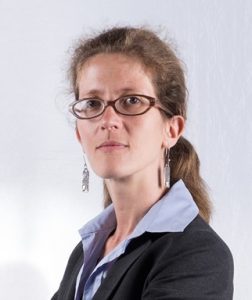Addressing the Perpetual Punishment of Criminal Records

In the United States, by some estimates, 100 million individuals have a criminal record and 19 million are living with a felony conviction. The debilitating consequences of a criminal record are extensive. Please join us on March 11, as we review the existing impact of criminal records, dissect the reasoning which underlies the utility of permanent records, compare discretionary and automatic relief, and explore the potential gains of accessible automatic expungement for individuals, collective communities and generations to come.
Valentina M. Morales, Senior Director of Justice Initiatives, The Fedcap Group, Wildcat, Faclilitator
William Eric Waters, Senior Director of Jail-Based and Youth Programs, Wildcat, Facilitator
Avery Bizzell, Community Organizer, Community Service Society of New York
Anna Roberts, Professor of Law, St. John’s University School of Law
Margaret Colgate Love, Executive Director, Collateral Consequences Resource Center
Lisa Perlman, Chief of Sealing Unit, Post-Conviction Justice Bureau, Brooklyn District Attorney’s Office
View the Replay
Facilitators
Valentina M. Morales, Senior Director of Justice Initiatives, The Fedcap Group, Wildcat
William Eric Waters, Senior Director of Jail-Based and Youth Programs, Wildcat
Panelists
Avery Bizzell, Community Organizer, Community Service Society of New York 
Avery Bizzell is the Community Organizer for CSS’s Legal Department, organizing the Clean Slate NY Campaign, which seeks passage of legislation in New York State to expunge stale conviction records. Avery also oversees CSS’s New York Reentry Roundtable, a quarterly forum that brings together reentry advocates from across the state to formulate strategies to make reintegration smoother, by changing minds and changing laws. Avery brings a wealth of community organizing skills and experience, from organizing cafeteria workers while a student at Morehouse College to working as an Organizing Fellow for SEIU 32-BJ to organizing and training people of color at the Center for Third World Organizing and all stops in between. Avery is a member of Black Youth Project 100 (BYP100) where he currently serves as the C4 Board Representative for the New York City Chapter.
Anna Roberts, Professor of Law, St. John’s University School of Law 
Anna Roberts is a Professor of Law at St John’s University School of Law, and was previously a public defender at the Neighborhood Defender Service of Harlem. She is a scholar of criminal procedure and evidence, with articles published or forthcoming in journals that include the University of Chicago Law Review, Washington University Law Review, and Minnesota Law Review. Her scholarship focuses on the role of assumptions and stereotypes within criminal law and scholarship. Her first articles examined this topic in various jury contexts: jury deliberation, jury selection, and jury disqualification. A subsequent trilogy of articles addressed prior conviction impeachment. More recent work continues to examine the meaning attributed to arrests and to convictions, and focuses on the assumptions conveyed and fueled by popular criminal justice terms, such as “victim,” “offender,” and “recidivism.”
Margaret Colgate Love, Executive Director, Collateral Consequences Resource Center 
Margaret Love practices law in Washington, D.C., specializing in executive clemency and restoration of rights, and sentencing and corrections policy. She is Executive Director of the Collateral Consequences Resource Center (CCRC), which maintains the Restoration of Rights Project, a state-by-state survey of restoration of rights mechanisms that is available on the website of the CCRC. She has written extensively on the presidential pardon power, is lead co-author of Collateral Consequences of Criminal Convictions: Law, Policy and Practice (NACDL/West, 3d ed. 2018-2019), and serves as an Adviser to the American Law Institute’s Model Penal Code: Sentencing project. Before establishing her private practice in 1998, Ms. Love served in the U.S. Justice Department for twenty years, from 1978 to 1997, including as U.S. Pardon Attorney (1990-1997). She received her law degree from Yale and has an M.A. in Medieval History from the U. of Pennsylvania.
Lisa Perlman, Chief of Sealing Unit, Post-Conviction Justice Bureau, Brooklyn District Attorney’s Office
Lisa Perlman began her career as a prosecutor at the Brooklyn District Attorney’s Office in 1996. As an Assistant District Attorney, she has gained experience in all phases of criminal prosecution, from pre-arrest investigation through trial and post-conviction matters. She has both extensive trial and administrative experience. Lisa spent nine years assigned to the Domestic Violence Bureau where she prosecuted felony domestic violence cases as well as supervised junior attorneys. Lisa spent several years in the Conviction Review Unit, investigating cases to determine if there had been a wrongful conviction. Four of Lisa’s investigations resulted in exonerations, including: Denny, who served 29 years in prison for a crime he did not commit and three men convicted of an arson they did not commit, two of whom spent over 30 years in prison, and one of whom died after serving nine years. She is currently Chief of the Sealing Unit, which, pursuant to a New York state law enacted in 2017, answers motions by individuals seeking to seal records of non-violent convictions that create an obstacle to obtaining employment, housing and other opportunities. Additionally, Lisa handles post-conviction motions for resentencing made by defendants under the New York State Domestic Violence Survivors Justice Act, which was enacted in 2019. Lisa served on an Advisory Committee for Healing Justice, a national non-profit organization that provides support to both original crime victims and exonerees in wrongful conviction cases and exonerations. She graduated from Barnard College and Georgetown University Law Center.